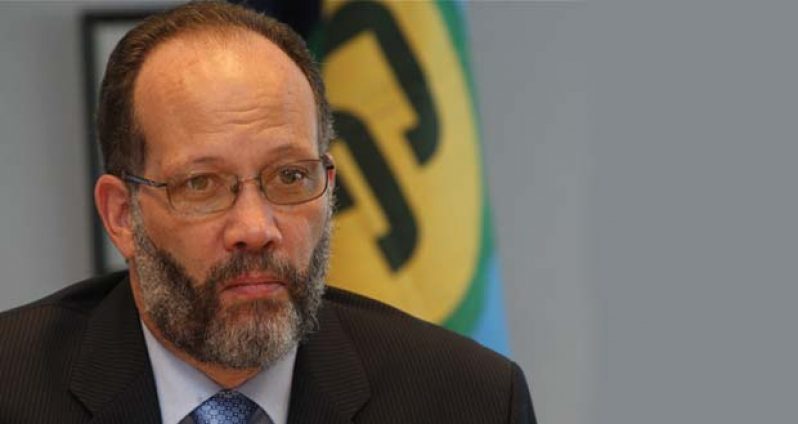IN RECENT times, organisations such as the Inter-American Commission on Human Rights (IACHR) have continued to make damning statements against regional Governments based on perception indices, no empirical data and in the absence of affording the said Governments a fair hearing.
And Caribbean Community’s (CARICOM) Secretary-General, Irwin LaRocque, contends that “premature statements” could be an embarrassment.
“Generally speaking, it is a good thing to not comment hastily on issues. I am one who believes you first have to weigh things before you comment. Comment when you think you have all the facts. What guides me in making a statement is that I must have all the facts. Premature statements could be an embarrassment,” he told the Guyana Chronicle in an interview on Friday evening.
According to him, CARICOM cannot dictate how bodies deal with issues, but if something offensive has been said, such statements could warrant a review.
“Each organisation has its way that it deals with issues. If something offensive has been said we would have to look at it,” he said.
DOMESTICALLY ASSESSED
On the question of continued engagements between CARICOM member states and bodies like the IACHR, LaRocque was clear in stressing that this would first need to be domestically assessed.
“The IACHR, the constituent members include member states, so the decision as to whether one stays in or out of such a commission is a matter that would first have to be assessed domestically,” he said.
The CARICOM Secretary General’s comments follow questions being asked about how long are CARICOM Governments going to tolerate organisations they support and fund in the lynching of the same Administrations.
This is the question being asked by several political pundits as the Inter-American Commission on Human Rights (IACHR) comes under fire for what is being deemed as “premature pronouncements” being seen as not premised on the principles of law, due process or fairness.
This recent contention was expressed following a statement by the Commission calling for the “adoption of precautionary measures for members of Kaieteur News” given that that the three staff members “received threats against their lives and personal integrity as a consequence of their work” as journalists.
The Commission’s statement followed much hullaballoo over a controversial 19-minute private conversation between a senior reporter at Kaieteur News, Leonard Gildharie, and the Attorney-General and Minister of Legal Affairs, Anil Nandlall, which was illegally recorded and made public by Kaieteur News publisher, Mr. Mohan Lall, also called Glen Lall.
The IACHR said: “After analysing the allegations of fact and law, the Commission believes that the information presented demonstrates prima facie (on initial examination) that the members of the Kaieteur News Journal are in a serious and urgent situation, since their lives and personal integrity face an imminent risk of irreparable harm.”
IGNORING OTHER SIDES
Notably, another two pivotal questions are: how can an organisation of this type and standing, conclude on allegations when only one side is heard; and which jurisdiction’s law was examined to arrive at such ‘prima facie’ position.
The Guyana Chronicle understands that this organisation is headed by two distinguished Caribbean jurists, Tracy Robinson and Rose-Marie Belle Antoine.












